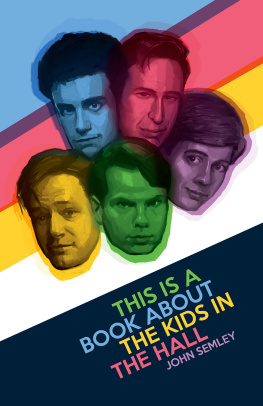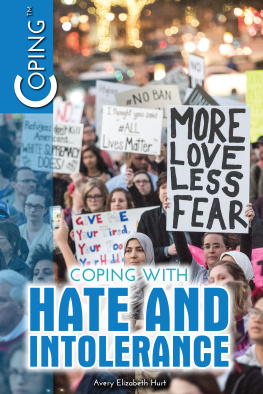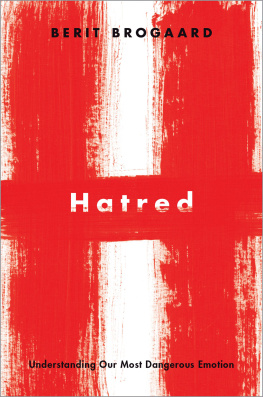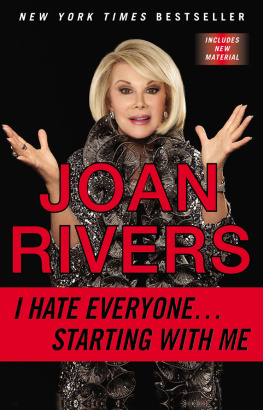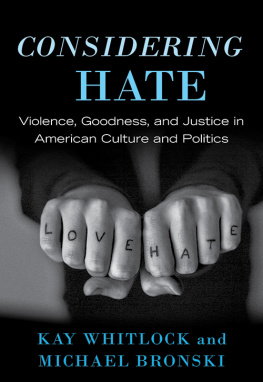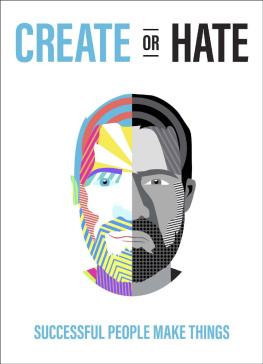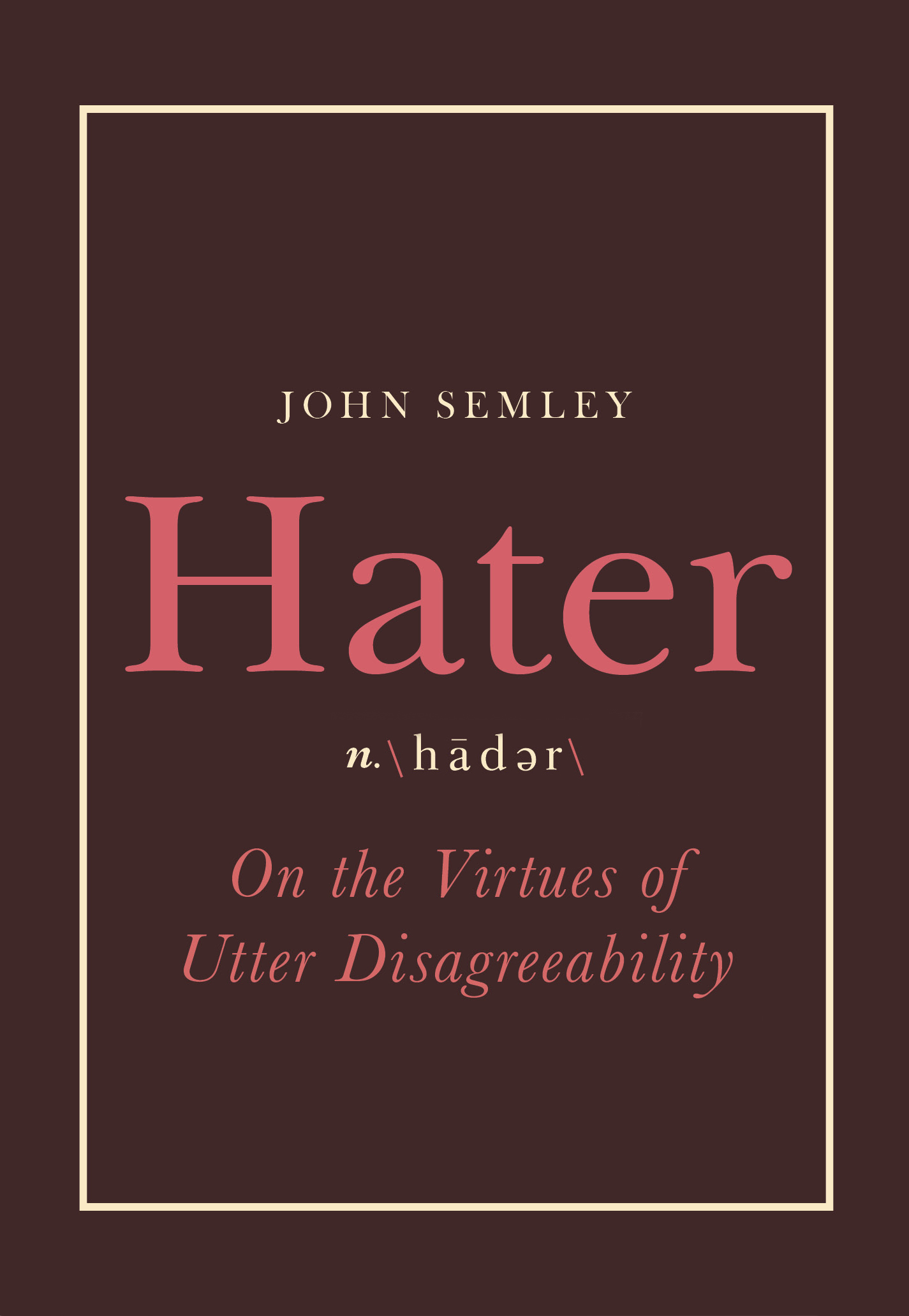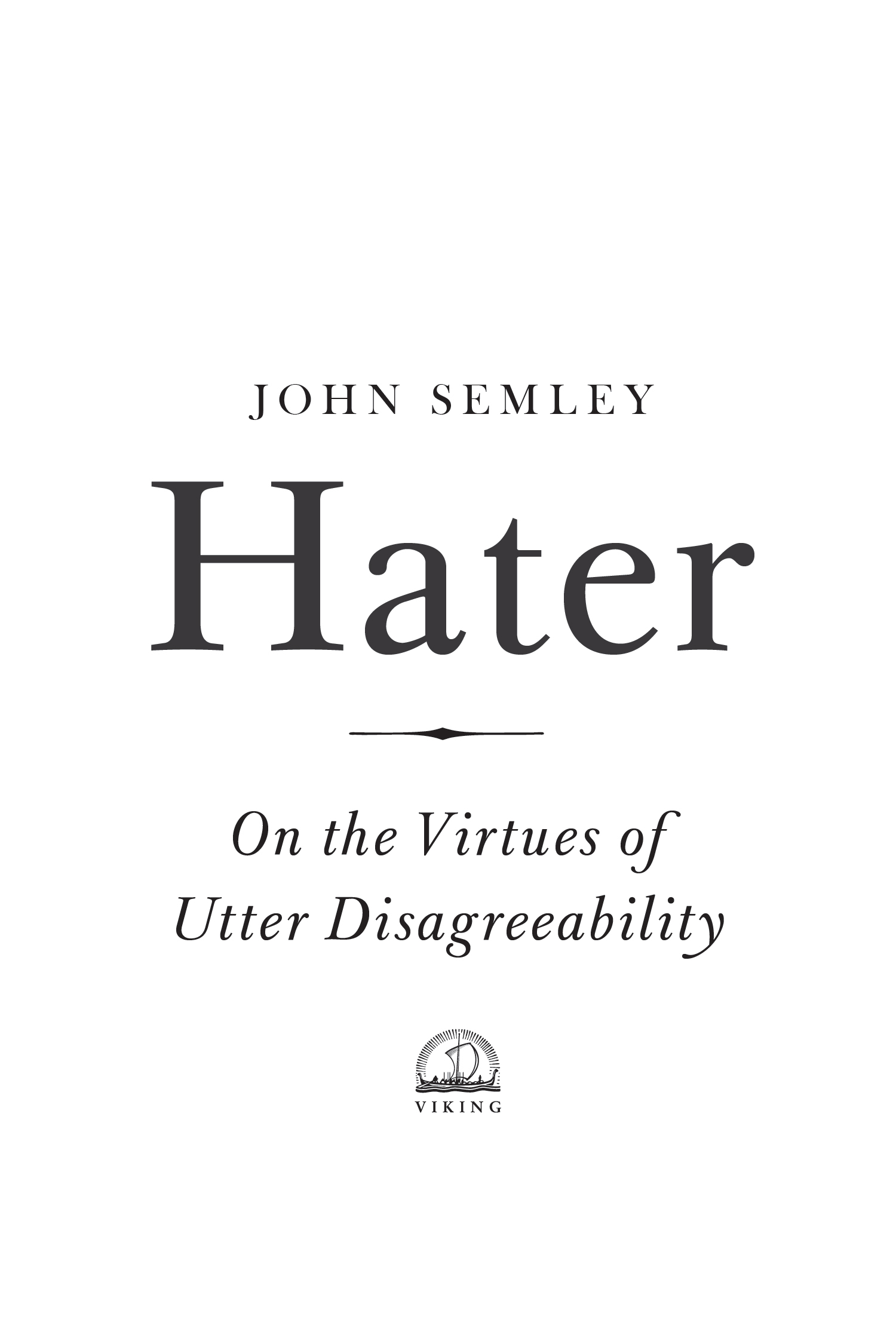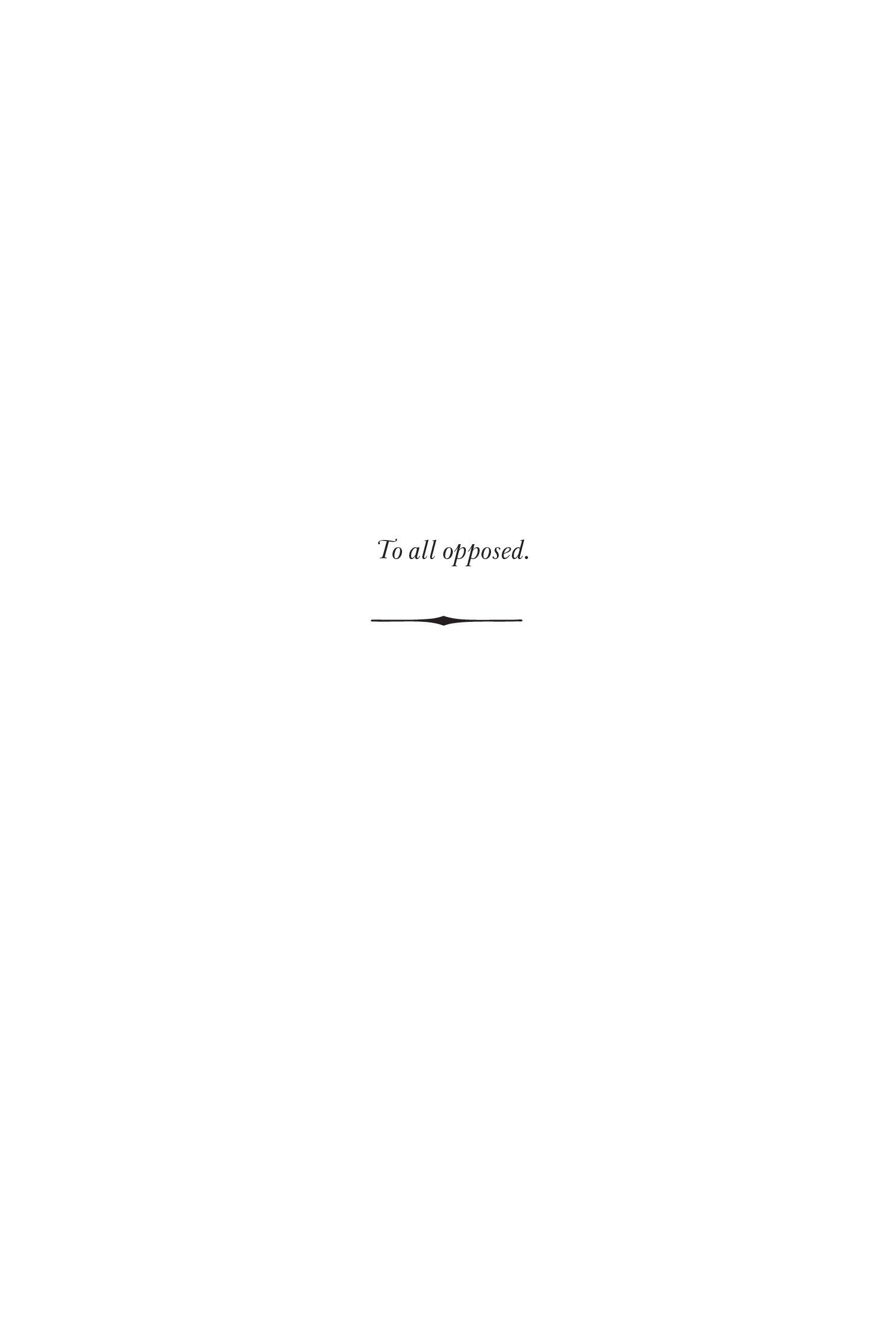All rights reserved. Without limiting the rights under copyright reserved above, no part of this publication may be reproduced, stored in or introduced into a retrieval system, or transmitted in any form or by any means (electronic, mechanical, photocopying, recording or otherwise), without the prior written permission of both the copyright owner and the above publisher of this book.
Hater : on the virtues of utter disagreeability / John Semley.
Issued in print and electronic formats.
1. Popular culture. 2. Art appreciationPopular works. 3. CriticismPopular works. 4. Criticism (Philosophy)Popular works. 5. Critical theoryPopular works. 6. Critical thinkingPopular works. 7. AestheticsPopular works. 8. Acquiescence (Psychology)Popular works. 9. AversionPopular works. I. Title.
INTRODUCTION
- The Contrarian Impulse -
The stupidest fight Ive ever started erupted in late August 2017 when, while distractedly switching between Twitter and a PDF of Sammy Davis Jr.s autobiography, Yes I Can, and listening to heavy metal music on YouTube, a random thought occurred to me, and so I tweeted:
why? > smalltown boy
The songs are both singles from British synthpop trio Bronski Beats 1984 debut record, The Age of Consent. Neither song, its fair to say, is especially well known to a general audience. Nor were they smash hits (though Smalltown Boy got to #1 on the charts in a few Benelux countries). Theyre relatively minor songs by a relatively minor group, and the idea of suggesting that one is better than the other (especially the one thats least well known of the two)more than thirty years after their original releasehad all the marks of a hollow provocation.
As they say, I know whereof I speak. Ive been in some totally pointless, idiotic fightsfights that ran the gamut from self-defeating to smugly self-affirming.
I once tried to stir up an argument by asking, halfway honestly, who would win in a full-out, drag-down fight between the anthropomorphic bad-boy baseball from the VHS cover of the 1989 baseball comedy Major League and the anthropomorphic good-ole-boy football from the VHS cover of the 1991 football comedy Necessary Roughness.
In Grade 7 debate club, I fiercely led a rebuttal against the ludicrous resolution that Barqs Famous Olde Tyme Root Beer possessed, per its ad campaign, bite. I once vexed someone, largely for my own amusement, by mounting the argument that musically, everyone agrees that Iron Maiden is the best band, music-wise, in sheer terms of the music. I have defended the Lou Reed/Metallica team-up album Lulu, which everyone hates, in part just because everyone hates it. Because if I dont, who else will? (Also, I sincerely stand by Lulus howling opener Brandenburg Gate as being a very interesting hard rock song, if not necessarily a conventionally good one.)
Those were good fights, in their own way. But of all the dormant beehives to kick around for sport, this would-be contretemps about the songs Why? and Smalltown Boy was no doubt the stupidest. Its pretty much a joke at the expense of the idea of even having an opinion about anything at all. But it proved to be the most revealing. Because somehow, it worked. Someone took the bait. A few people, even.
One Twitter follower immediately told me to stay in my lane. Another chimed in to say that both songs are timeless classics, a sentiment that carried with it the assumption that pitting one against the other was a futile exercise. Yet another interjected to mention The Communards, another British synthpop duo carried by the piercing falsetto of Bronski Beat singer Jimmy Somerville.
Granted, the back-and-forth was never elevated to the level of a true argument. Nobody discussed how the experience of being a young gay man in the early 1980s is framed differently in each song: the fantasy of escapism and retreat from oppression and familial rejection of Smalltown Boy weighing against the more upright, defiant tone of Why? with its imperative call for an explanation of oppression and hate (Can you tell me whyyyyyy-auuuuurrrrghhhhh?!).
But more to the point, this exercise cut to the heart of a deeper instinct. Starting a fight on social media about two singles nobody really remembers by a band nobody really cares about? This is the essence of the contrarian impulse.
And it is at the heart of what it means to be a hater.
In 2009, the word hater found its way into the Oxford English Dictionary, which is pretty much the dictionary you want to be in if youre an aspiring Legitimate Word. Heres how the English-language gatekeepers at the OED define it:
hatern. a person who greatly dislikes a specified person or thing: a man hater | hes not a hater of modern music.
informal a negative or critical person: she found it difficult to cope with the haters.
The Oxford folks, as is often the case, were merely playing catch-up, well after the word had already gained purchase in the everyday parlance. A top-rated entry on the website Urban Dictionary dates back to 2005 and defines hater on a slightly different axis, more attuned with the OEDs informal definition (itself formalized by virtue of inclusion in the Oxford English Dictionary). Heres their definition, all typos and grammatical eccentricities sic:
hater
A person that simply cannot be happy for another persons success. So rather than be happy they make a point of exposing a flaw in that person.
Hating, the result of being a hater, is not exactly jealousy. The hater doesnt [sic] really want to be the person he or she hates, rather the hater wants to knock somelse [sic, again] down a notch.
Susan: You know, Kevin from accounting is doing very well. He just bought a house in a very nice part of town.
Jane (hater): If he is doing so well why does he drive that 89 Taurus?
This book, Hater, is preoccupied with these latter, informal, somewhat clumsier definitions. Its not about hating as a matter of preference, as one might hate (per the


